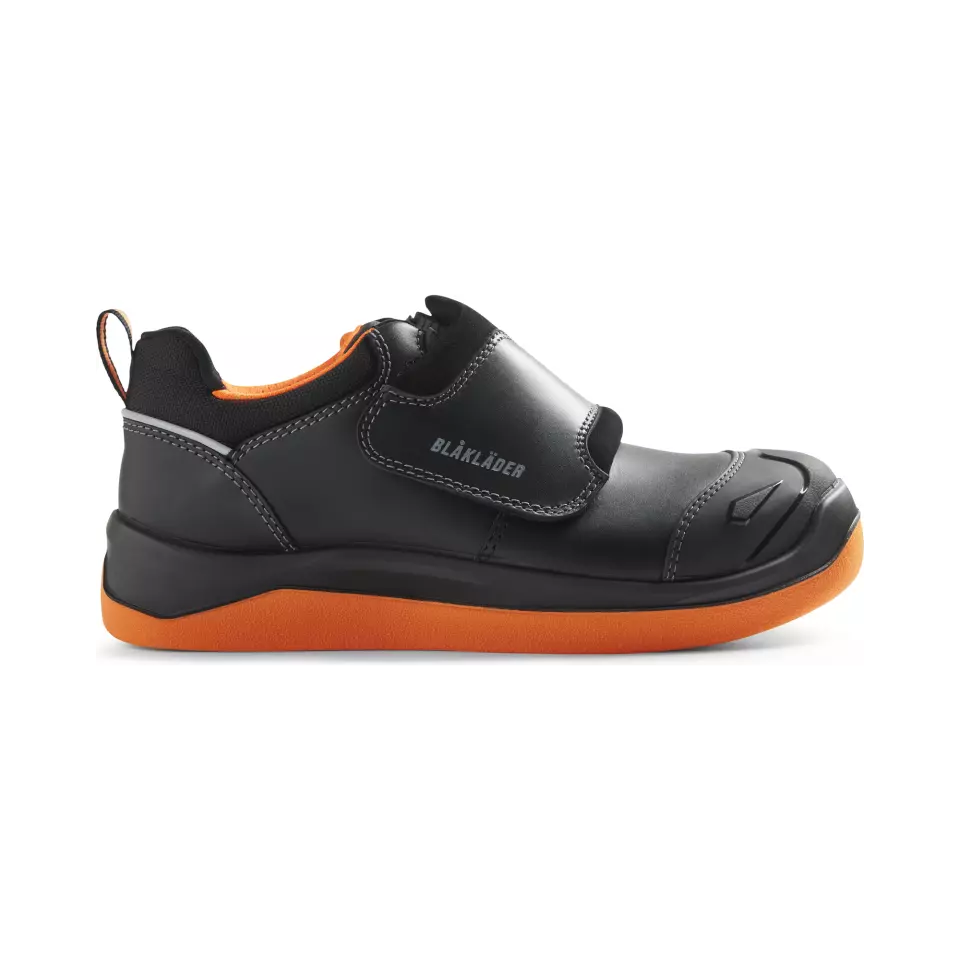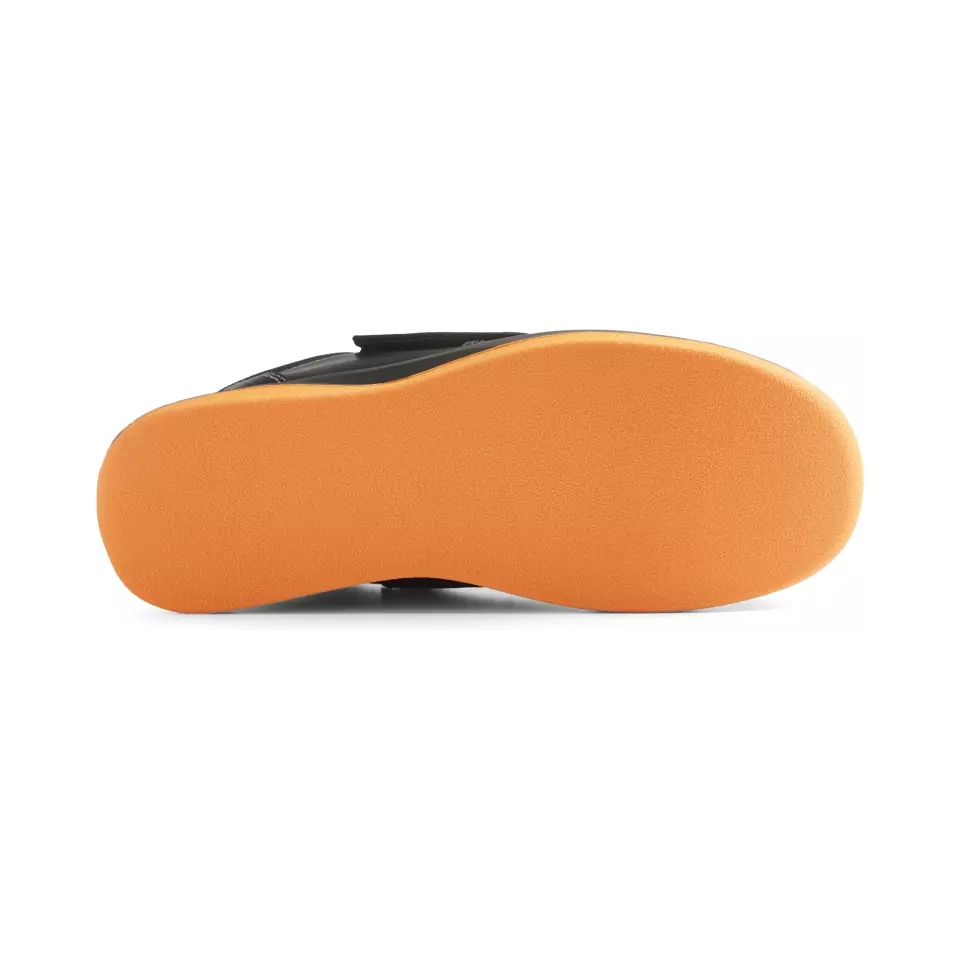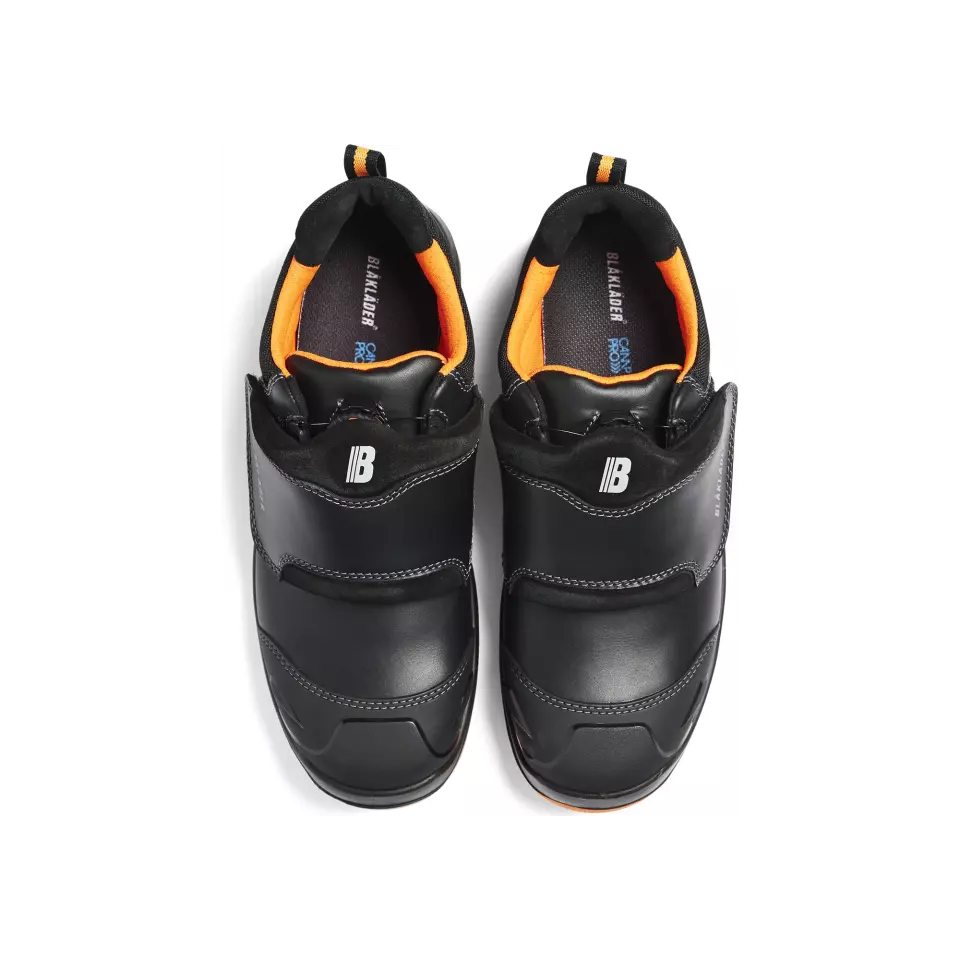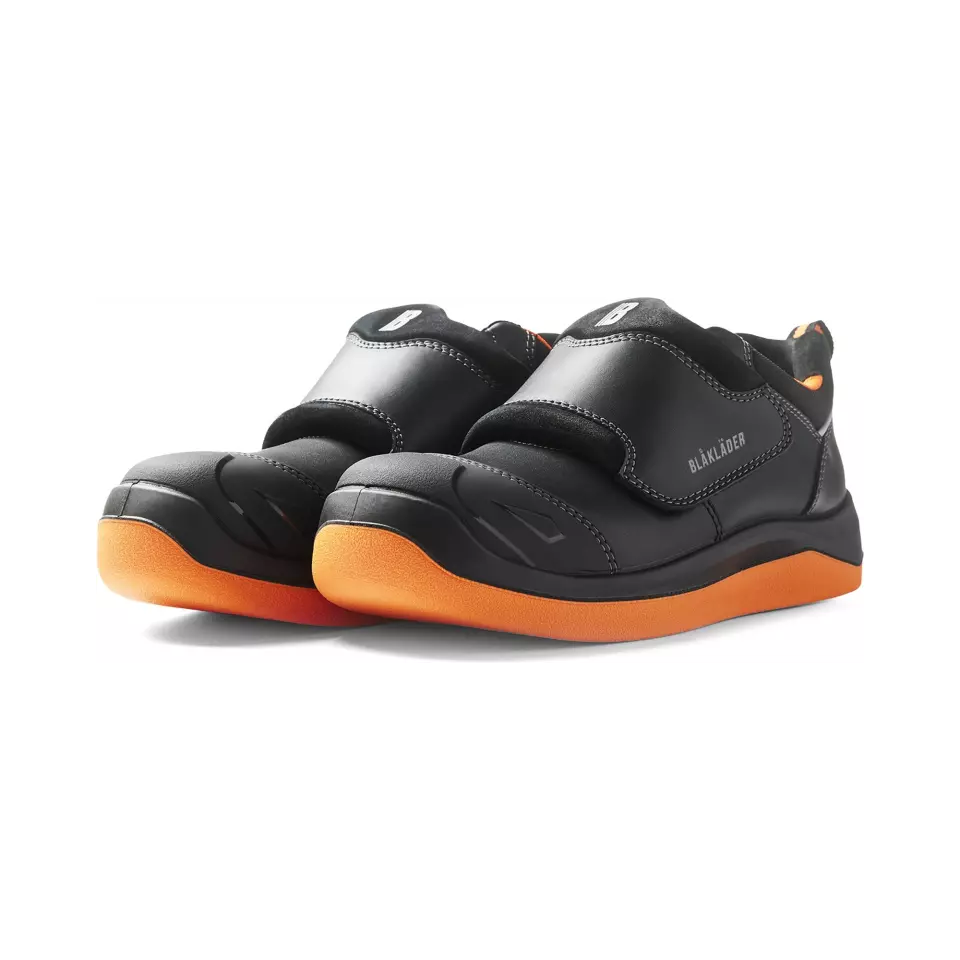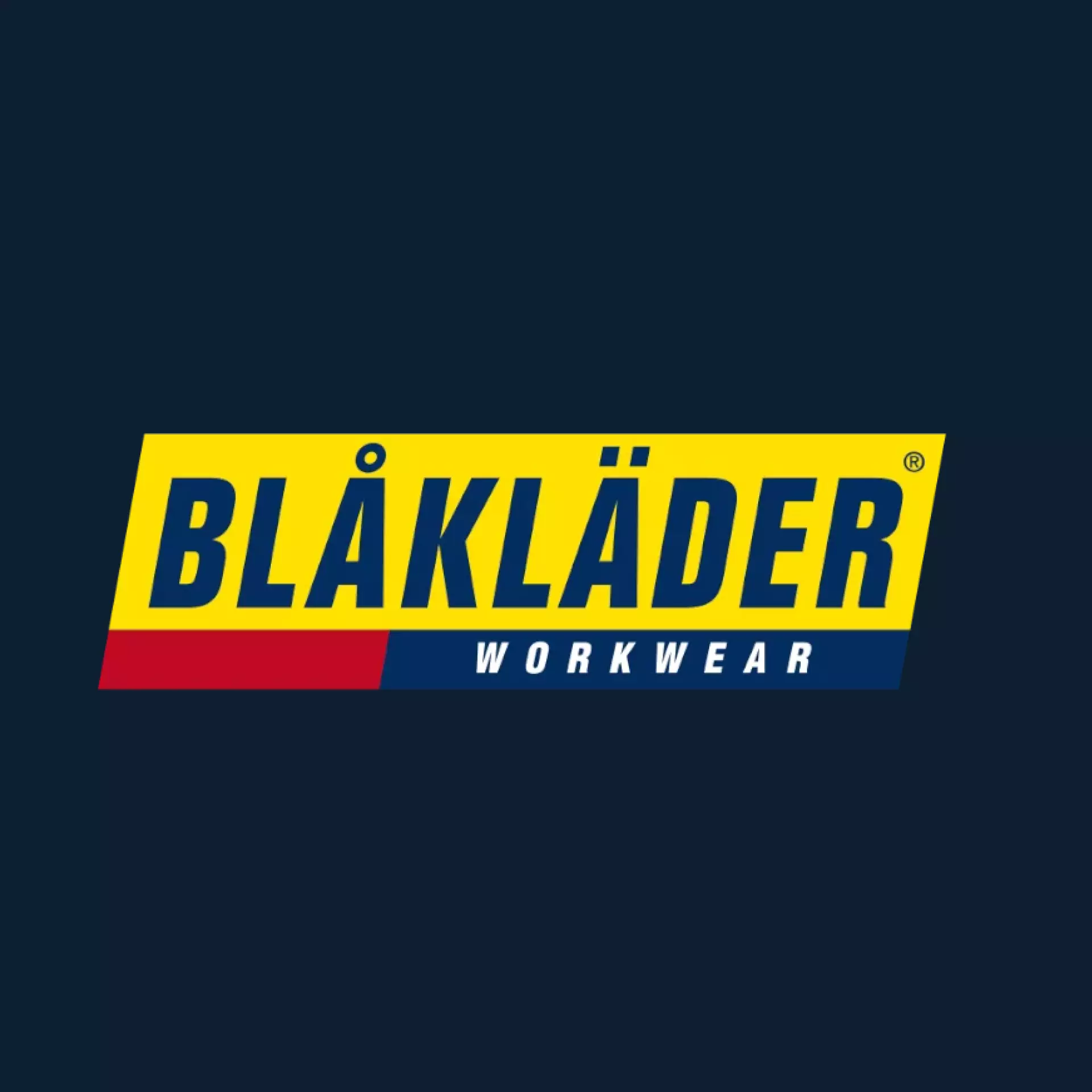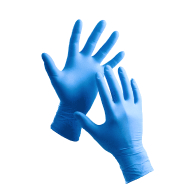Blåkläder ASPHALT Safety Shoe, Black
Blåkläder
visit storeProduct description
This safety shoe has been specifically designed for working with asphalt and provides protection at temperatures up to 300°C. The durable full-grain leather with nitrile rubber surface, integrated heat protection film, and textile penetration protection ensure optimal protection in demanding work environments. The Freelock closure with hook and loop straps enables quick putting on and taking off, while the anatomically shaped PU insole provides comfort.
Product Features:
- Freelock closure with leather tongue and two hook and loop straps
- Padded shaft edge for enhanced wearing comfort
- Reflective details for better visibility
- Wide fit for optimal fit
- Water-repellent properties
Technical Details:
- Upper material: Full-grain leather with nitrile rubber surface
- Toe cap: Composite with TPU reinforcement
- Penetration protection: Textile PL
- Sole material: PU midsole, nitrile outsole
- Insole: Textile with soft PU, anatomically shaped
- Lining: Polyester
- Antistatic properties
- Heat-resistant outsole up to 300°C
- Oil-resistant outsole
- Slip resistance: SRA
Recommended Application:
- Road and construction workers
- Primarily for outdoor use
Standards:
- EN ISO 20345:2022 S2PL FO HRO HI SC
- Safety class: S2PL
Indicates whether the shoe is designed for men's, women's, or unisex foot anatomy to ensure proper fit and comfort during wear.
The method used to secure the shoe to your foot, affecting how easy it is to put on and take off.
The design and padding around the shoe's ankle opening, affecting comfort and fit during extended wear.
The material used in the protective toe cap, determining the level of impact protection, weight, and suitability for different work environments.
Shock-absorbing soles provide cushioned comfort, reducing impact and foot fatigue for all-day wear.
Protect your feet from sharp objects and unseen hazards, giving you peace of mind on any job site.
Oil-resistant soles ensure secure footing and lasting durability in oily environments.
Anti-slip soles provide superior grip, keeping you safe and steady on challenging surfaces.
Indicates the level of protective features, from basic safety compliance to enhanced protection with additional guards and reinforcements.
- Impact Resistance
- Slip Resistant
- Water Resistance
- Electrical Protection
- High Visibility
- Heat & Flame Resistance
Request a free sample
Test first and buy later. Visit any product page to request your free sample.
Standards and labels
Test results
General Requirements FOThe standard EN ISO 20345:2011, specifically its General Requirement FO, pertains to footwear containing fuel oil-resistant outsoles. When footwear under this specification successfully meets the FO requirement, it implies that the footwear's outsole has been tested and confirmed to resist degradation due to contact with fuel oil. The test involves exposing the outsole material to fuel oil for a determined period, typically 22 hours, at a controlled temperature of 22°C. This test assesses the change in volume and properties of the outsole following fuel oil exposure by measuring its tensile strength and elongation before and after the exposure. For procurement professionals, a positive FO result indicates that the footwear's outsole will maintain its mechanical performance and integrity when in contact with fuel oil, making it suitable for industries where oil exposure is frequent, providing durability and reliable performance under such conditions.
General Requirements CRThe standard EN ISO 20345:2011 encompasses general requirements for safety footwear to ensure they provide adequate protection in various occupational environments. Rating 'CR' signifies that the footwear has a cut resistant upper ensuring enhanced protection. The test method involves assessing the material's resistance to splitting or cracking under certain conditions, which simulates real-world industrial hazards involving sharp objects or surfaces. Practically, this result ensures that the footwear is suitable for environments where there is a risk of materials splitting or getting caught, thereby providing essential safety benefits to the user.
General Requirements HROThe HRO result listed in the standard EN ISO 20345:2011 pertains to the heat resistance of the outsole of safety footwear. This test result confirms that the outsole is capable of withstanding exposure to high temperatures without degrading its physical properties and performance. The test method requires that the outsole of the footwear be exposed to 300°C for a minimum of 60 seconds under specified conditions, during which the outsole should not melt or crack, ensuring that it continues to provide protection against hot environments. Since the HRO classification attests to heat resistance, this feature is particularly important in industries such as metallurgy or construction, where contact with hot surfaces is a common hazard. Understanding this result can assist procurement professionals in sourcing appropriate safety footwear that meets the required durability and performance in high-temperature working conditions.
General Requirements HIThe General Requirements HI result in the standard EN ISO 20345:2011 indicates that the footwear has been evaluated for insulation against heat. This particular result implies that the footwear can offer a certain level of protection against heat, ensuring that the user's feet are insulated when exposed to high temperatures. The test for this requirement involves assessing the footwear's capacity to provide insulation from heat under controlled test conditions. Given the practical implications, this result suggests that the footwear is suitable for environments where exposure to heat is a significant factor, such as in foundries or steel mills, thereby safeguarding the wearer’s feet against thermal risks. This is crucial for procurement professionals when considering safety footwear for sectors where heat resistance is paramount, ensuring compliance with safety regulations and protective performance criteria.
Textiles are materials made from fibers, such as cotton, wool, or polyester. In Europe, there are rules for how textiles should be made, sold, and labeled. These rules are set by the European Union. These rules ensure that textiles are safe and do not contain harmful chemicals, that they are labeled correctly and that the use of certain dangerous chemicals are banned. These rules are set to protect the health and safety of consumers and the environment. Companies that make or sell textiles in the EU must comply with these rules.
Blåkläder delivery terms
Free delivery for all Blåkläder products
142,20 €
Free delivery
Sold in units of one pair
Need larger quantities?
Other products you may like
Recently viewed
Need help?
Get help from our experts
Other products you may like
Similar products you may like
Autonomous sourcing platform
The most efficient way to source and order supplies for your operations
Sourcing
Ordering
List products you’re looking for and we’ll find the best products and prices for you – all for free.
Need help?
Get help from our experts
